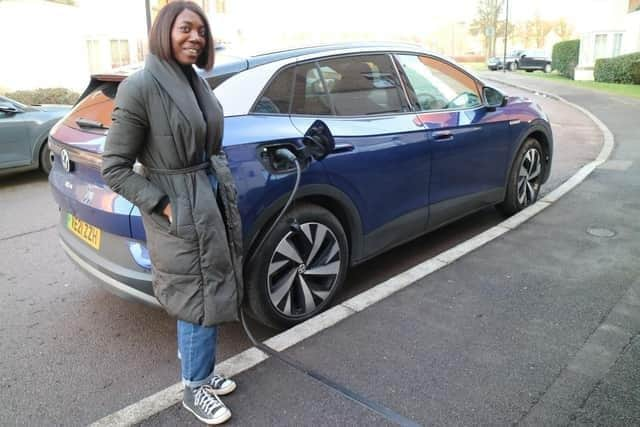Pavement EV charging system trialled in Milton Keynes wins backing from TV’s Dragon Den
and live on Freeview channel 276
An innovative pavement EV charging system trialled in Milton Keynes has won investment from Deborah Meaden on TV’s Dragons’ Den.
Founders Michael Goulden and Ben Whitaker were offered a £50k investment to help their business, Kerbo Charge, make the product available across the UK.
Advertisement
Advertisement
The team faced Dragons Peter Jones, Deborah Meaden, Touker Suleyman, Sara Davies and Steven Bartlett on last night’s programme in the hope of securing additional funding and support to expand their business. (15/2)


Both Deborah Meaden and Touker Suleyman expressed an interest in the company with the duo eventually opting to partner with Deborah.
Milton Keynes Council trialled the new electrical car vehicle charging technology a year ago as featured in the MK Citizen
The council estimates it could save motorists £1,400 each year compared to charging solely at fast public chargers.
Advertisement
Advertisement
And Kerbo Charge, which is based in London, says the technology will also make a huge difference to EV adoption and clean air in cities.
Deborah Meaden said on the show: “Local authorities have an impending massive problem that is going to cost a fortune.
"This is a very cost-effective way of dealing with this driving issue and there is a lot of cash around for solving these problems.
“You have a legislative drive, you have a lot of cash available. You’ve got a perfect storm.”
Advertisement
Advertisement
The idea for the new technology came after the founders became frustrated with the lack of suitable charging options for EV owners without a driveway. Currently households need to trail a cable over the pavement which can create a trip hazard for anyone using the path or travel to a public charging point, which is more expensive and time-consuming.
It works by inserting the charging cable into a channel outside a resident’s home and the lid sits flush with the pavement eliminating any trip hazard. The channel is designed with the UK’s ‘wonky’ pavements in mind and can flex with the pavement surface during installation.
It is hoped the new innovation in charging technology will encourage more motorists to switch to electrical cars.